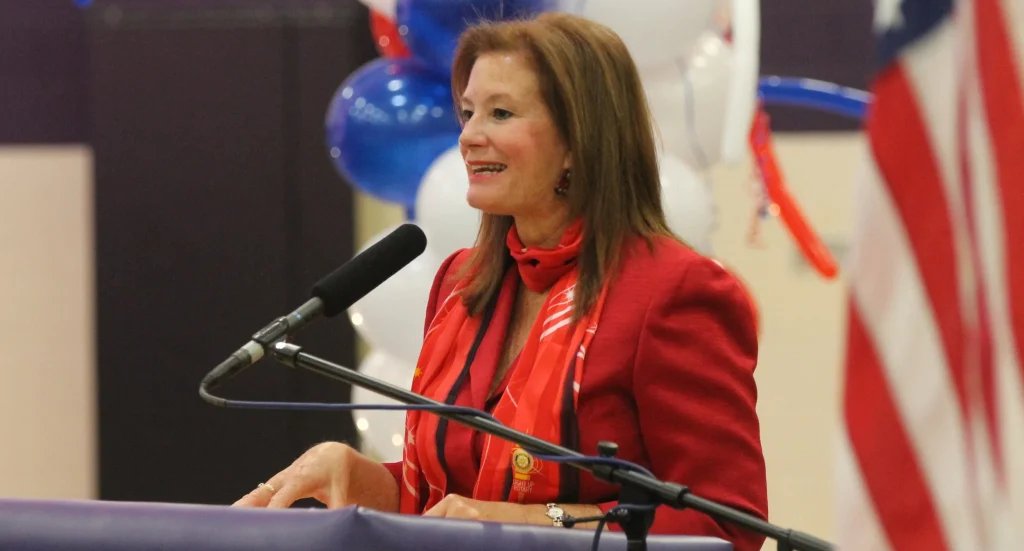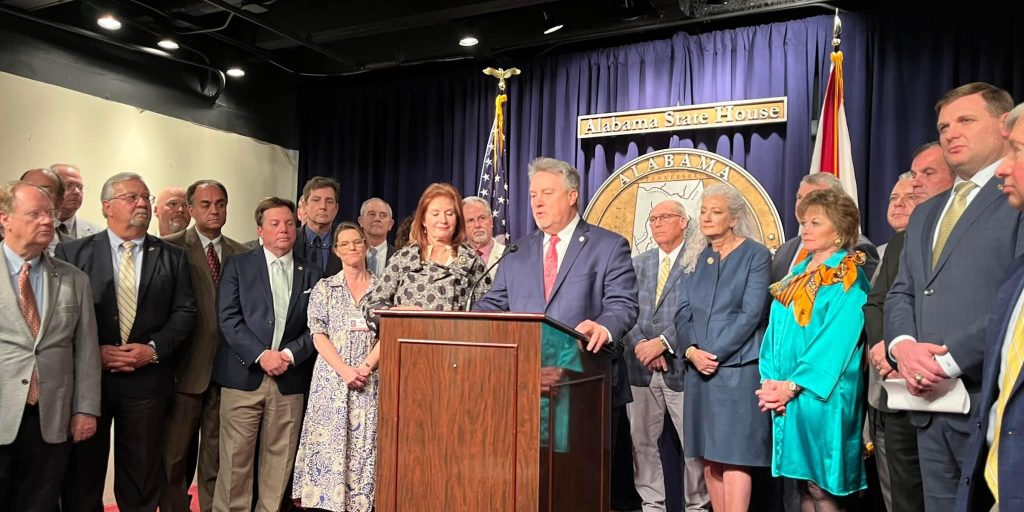Since the state legislature passed a law creating the option in 2015, attending an Alabama public school over the internet has become an increasingly popular choice for students across the state.
The year 2020 saw the first graduating class of students who learned virtually for all four years of their high school education.
Additionally, online schools are seeing increased attention as the coronavirus pandemic creates concern among some returning students.
State Superintendent Eric Mackey told WBRC that school officials are looking to expand virtual learning options. Mackey highlighted specifically that virtual options would let immunocompromised students learn without the fear of contracting COVID-19.
State Rep. Terri Collins (R-Decatur), who chairs the House Education Policy Committee, told Yellowhammer News that the consensus number among Alabama educators, as of now, is around 5% of students may not return to the classroom this fall.
Estimated enrollment in Alabama’s public schools is around 740,000 students. Five percent of that would be 37,000 school kids.
“We’re just going to have to see what that looks like, and it may look different in different places,” added Collins on the coronavirus’ impact on enrollment.
The pioneering class that learned virtually for all four years graduated from Alabama Virtual Academy (ALVA), a project of Eufala City Schools. ALVA began with 50 students in 2015 and grew to over 3,000 students by 2019.
The Academy plans to raise its enrollment to 3,500 this fall to help accommodate increased interest during the coronavirus pandemic.
Students can enroll in ALVA regardless of where they live in Alabama.
Alabama Virtual Academy is done in partnership with the company K12 Education Inc., a firm that specializes in building online learning programs.
K12 Education Senior Director of School Partnerships and Compliance Perry Daniel told Yellowhammer News that ALVA is especially popular for students who live in Huntsville and Birmingham.
Daniel said 80% of nongraduating students who enrolled in ALVA last year have chosen to return this fall.
Students enroll in ALVA similarly to how they would at any other public school. The necessary supplies are then shipped to students at home.
Instruction at ALVA is conducted through a platform named Online School, with a supplement of video conferencing with certain teachers. It is available for students in grades K-12.
The Limestone County school system operates the Limestone County Virtual School Center, which is roughly similar in enrollment and course offerings to the Alabama Virtual Academy.
Athens City Schools and Conecuh County both operate much smaller virtual learning options.
The Chickasaw City school system in Mobile County opened a virtual academy focused on career training at the start of the 2019-2020 school year.
The school, called Alabama Destinations Career Academy, serves students in grades K-9 and aims to present “hands-on learning experiences in growing career fields” such as “information technology, heath and human services, and advanced manufacturing,” according to a release provided to Yellowhammer News.
Reporting by Alabama Media Group indicates there were 6,100 Alabama students enrolled in the virtual schools during the 2019-2020 school year.
ALVA from Eufala City Schools led the way with 3,091 students and Limestone County Virtual had 2,298.
A source of tension in the development of online schools is that the system providing the school gets the allotment of resources the State of Alabama allocates for each pupil enrolled, even as the costs for providing a virtual school are much less than a physical location.
The Alabama Department of Education recently issued a request for proposals to see which organizations could offer a feasible statewide online school. The proposals are due Friday, June 5.
“[I]n an abundance of caution, we want to have a virtual option in place that school systems across the state can take advantage of in the event it is needed,” Alabama State Department of Education Communications Director Michael Sibley recently told Alabama Media Group.
Collins commented to Yellowhammer about the statewide digital school, “I hope we’re just not looking for a bargain basement price, but that we’re actually looking for quality online education. Because it is available, and we want to make sure we’re getting something that is best for the students of Alabama.”
At the encouragement of Superintendent Mackey, multiple school systems across the state are also developing their own local virtual schools for this fall and beyond. Such efforts would be independent of the statewide virtual academy.
Collins told Yellowhammer that systems in Decatur City and Hartselle City, which she represents, are both building local virtual options.
Alabama State Senator Garlan Gudger (R-Cullman) recently addressed the ALVA graduating class that learned virtually for all of high school.
Gudger told the graduates, “We will talk about what happened these past few months for the rest of our lives, especially new phenomenon like social distancing.”
The state senator continued, “But one term that did not surprise any of you was virtual learning, because you all are the pioneers for virtual education here in Alabama. The skills you have learned at ALVA will undoubtedly serve you well as you advance to the next stage of life. Congratulations again a job well done.”
Henry Thornton is a staff writer for Yellowhammer News. You can contact him by email: [email protected] or on Twitter @HenryThornton95












